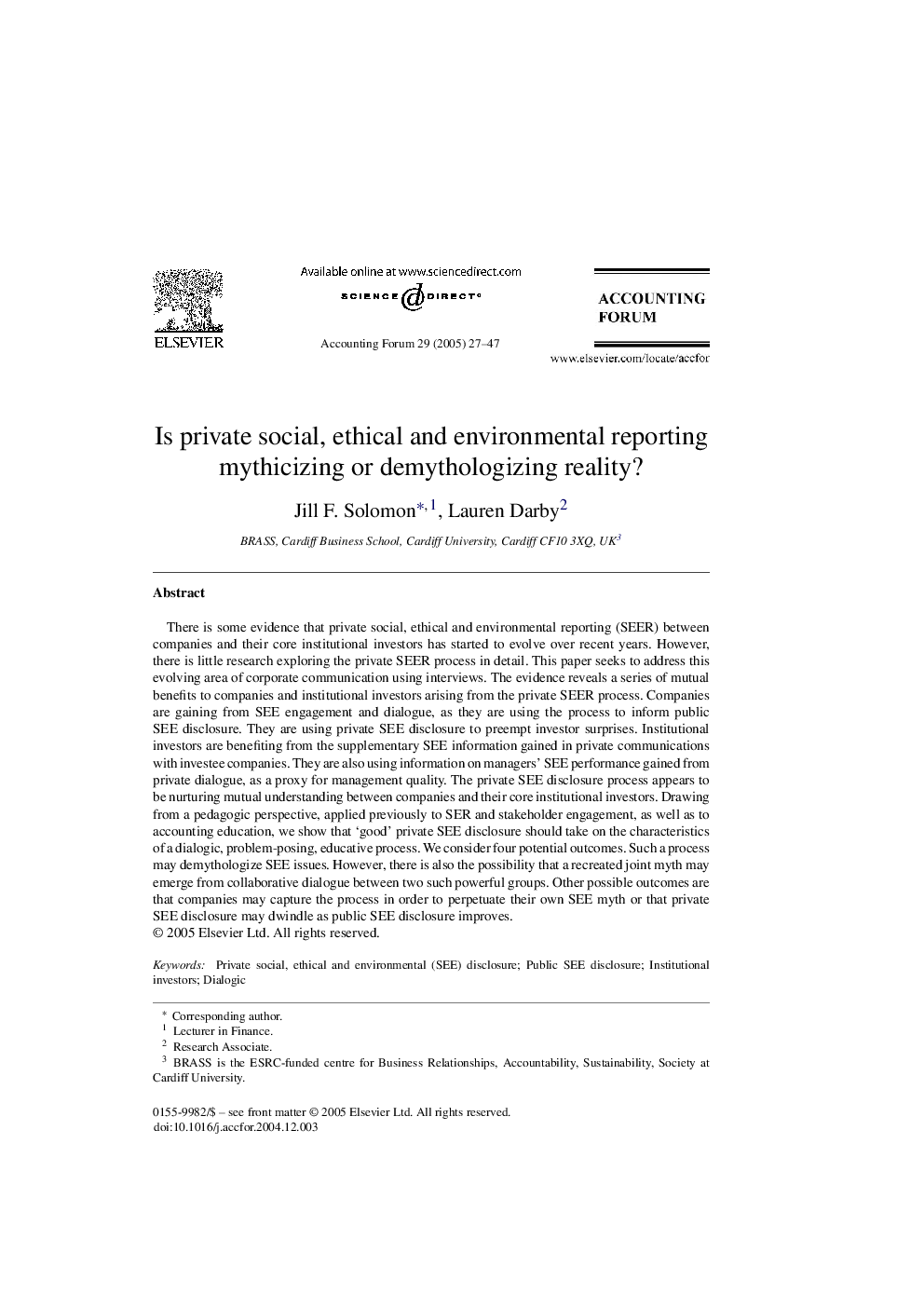| Article ID | Journal | Published Year | Pages | File Type |
|---|---|---|---|---|
| 10489347 | Accounting Forum | 2005 | 21 Pages |
Abstract
There is some evidence that private social, ethical and environmental reporting (SEER) between companies and their core institutional investors has started to evolve over recent years. However, there is little research exploring the private SEER process in detail. This paper seeks to address this evolving area of corporate communication using interviews. The evidence reveals a series of mutual benefits to companies and institutional investors arising from the private SEER process. Companies are gaining from SEE engagement and dialogue, as they are using the process to inform public SEE disclosure. They are using private SEE disclosure to preempt investor surprises. Institutional investors are benefiting from the supplementary SEE information gained in private communications with investee companies. They are also using information on managers' SEE performance gained from private dialogue, as a proxy for management quality. The private SEE disclosure process appears to be nurturing mutual understanding between companies and their core institutional investors. Drawing from a pedagogic perspective, applied previously to SER and stakeholder engagement, as well as to accounting education, we show that 'good' private SEE disclosure should take on the characteristics of a dialogic, problem-posing, educative process. We consider four potential outcomes. Such a process may demythologize SEE issues. However, there is also the possibility that a recreated joint myth may emerge from collaborative dialogue between two such powerful groups. Other possible outcomes are that companies may capture the process in order to perpetuate their own SEE myth or that private SEE disclosure may dwindle as public SEE disclosure improves.
Keywords
Related Topics
Social Sciences and Humanities
Business, Management and Accounting
Accounting
Authors
Jill F. Solomon, Lauren Darby,
